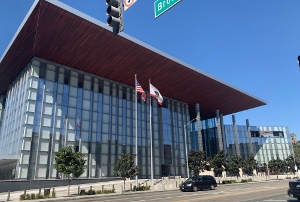We are Greg Hill & Associates. If you or a family member want more information about mental health diversion, we can help you.
California Penal Code § 1001.36 permits a judge, in his or her discretion, to stay proceedings in a case and allow “Mental Health Diversion” to give up to two years for an eligible defendant to receive helpful mental health treatment for prevent the reoccurrence of criminal conduct. The judge has this power in almost any case that was filed as a misdemeanor or a felony. This is a new program, as it only became available in late June, 2018.
Certain felonies are ineligible for referral to mental health diversion, such as murder, voluntary manslaughter, rape, lewd or lascivious conduct with a child under age 14, any crime requiring registration as a sex offender under Penal Code § 290, and possession of a weapon of mass destruction (Penal Code 11418(a) or (b)).
Defendant, too, must be qualified. The statute covering mental health diversion, Penal Code § 1001.36, excludes defendants with mental illnesses include antisocial personality disorder, borderline personality disorder and pedophilia.
The more common mental disorders, i.e. schizophrenia, bipolar disorder, schizoaffective disorder and post-traumatic stress disorder are qualified for relief under 1001.36.
Diversion under 1001.36 can last up to two years. If defendant successfully completes the course of mental health treatment, i.e. with a psychologist or psychiatrist or some type of specialized counselor, the judge can then order the arrest record and court file sealed. Penal Code § 1001.36(e).
To qualify for this program, one must first show the judge that defendant “suffers from a mental disorder as identified in the most recent edition of the Diagnostic and Statistical Manual (DSM) of Mental Disorder.” This is usually shown in the form of letter from a doctor, stating a recent diagnosis of a qualified mental illness. Penal Code § 1001.36(a)(1).

Second, defendant must persuade the judge that there is a nexus between the mental disorder and the crime. In other words, the judge must find that the mental disorder “played a significant role in the commission of the charged offense” or “substantially contributed to the defendant’s involvement in the commission of the offense.” Penal Code § 1001.36(a)(2).
We find this is the toughest requirement of being granted mental health diversion – and we have lost such motions based on this. There usually is little debate that the defendant suffers from some form of mental illness, but judges often disagree with a mental health expert on whether there is any connection between the mental illness and the crime.
The judge can consider the police report (with its inaccuracies and omissions), the preliminary hearing transcripts (if the case is a felony), witness statements, other doctor reports, or any other evidence that defendant displayed symptoms inconsistent or consistent with the disorder at or near the time of the offense.
In this regard, we have seen mental health diversion motions denied for a person diagnosed with kleptomania who was caught shoplifting. We had a client diagnosed with an anxiety disorder who was charged with solicitation of prostitution – the judge denied our motion on this requirement of a nexus (had our client even been diagnosed as a nymphomaniac, we believe the judge also would have denied the motion).
Third, the qualified mental health expert must opine “that defendant’s symptoms motivating the criminal behavior would respond to mental health treatment.” Penal Code § 1001.36(a)(3). The court must find that the recommended inpatient or outpatient program of mental health treatment will meet the specialized needs of defendant. Penal Code § 1001.36(c)(1)(a). Periodic progress reports will then be submitted to the court for its consideration and monitoring of defendant’s progress.
Fourth, defendant must consent to diversion, as well as the terms of diversion and waive his or her Sixth Amendment right to a speedy trial if granted diversion. Penal Code §§ 1001.36(a)(4) and (a)(5).
Lastly, the judge must find that “defendant will not pose an unreasonable risk of danger to public safety, as defined under Penal Code § 1170.18, if treated in the community.” Penal Code § 1001.36(a)(6). This requirement has been interpreted to mean that the defendant would pose an unreasonable risk of committing a “super strike,” which is an offense listed at Penal Code § 667(e)(2)(c)(iv) (i.e. murder, any homicide, solicitation to commit murder, assault with a machine gun on a police officer or fireman, possession of a weapon of mass destruction, or any serious or violent felony punishable by life in prison or death).
If mental disorder diversion is granted, defendant does not have to enter a “no contest” or “guilty plea” first. This is a delayed entry of plea diversion, not delayed entry of judgment (DEJ).
 Governor George Deukmejian Courthouse
Governor George Deukmejian Courthouse
Long Beach Superior Court
Defendant can certainly be removed from diversion if he or she does certain things such as “picking up” a new case, even if a misdemeanor and especially if it “reflects defendant’s propensity for violence.” (i.e. a domestic violence case) Penal Code § 1001.36(d)(1). If the treating professional notifies the judge that defendant is not doing well in the program (i.e. missing appointments), the judge can remove defendant from diversion and reinstate criminal proceedings.
We have sought this form of diversion for many clients and lost the motion quite often, but it has always led to a better resolution ultimately, so we recommend that this form of diversion be sought regularly and aggressively.
If you or a family member want more information about mental health diversion, please call us today for a free 45 minute consultation. You will receive top quality representation for a reasonable fee. (310) 782-2500.

 Governor George Deukmejian Courthouse
Governor George Deukmejian Courthouse